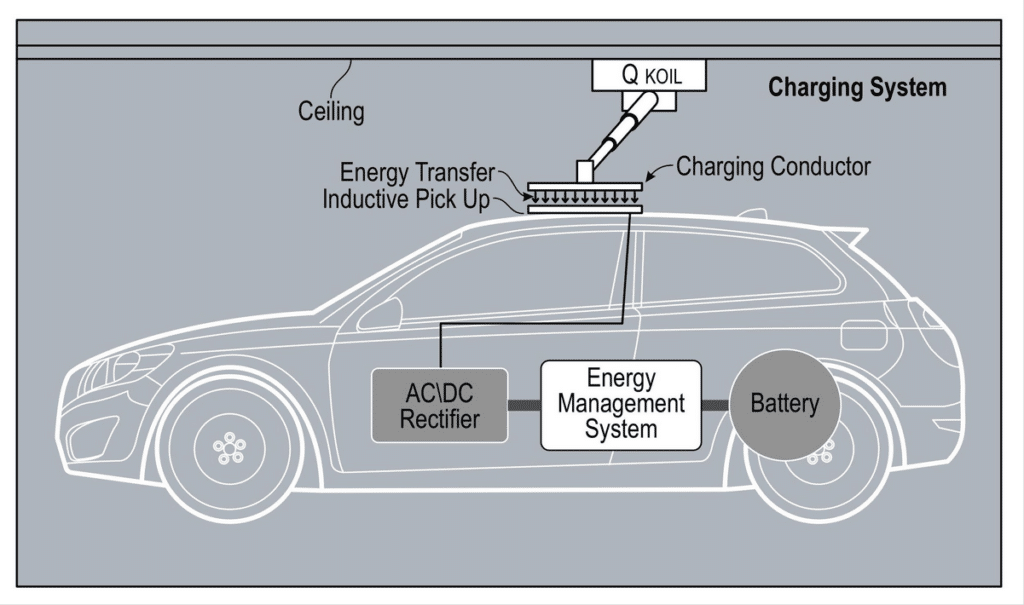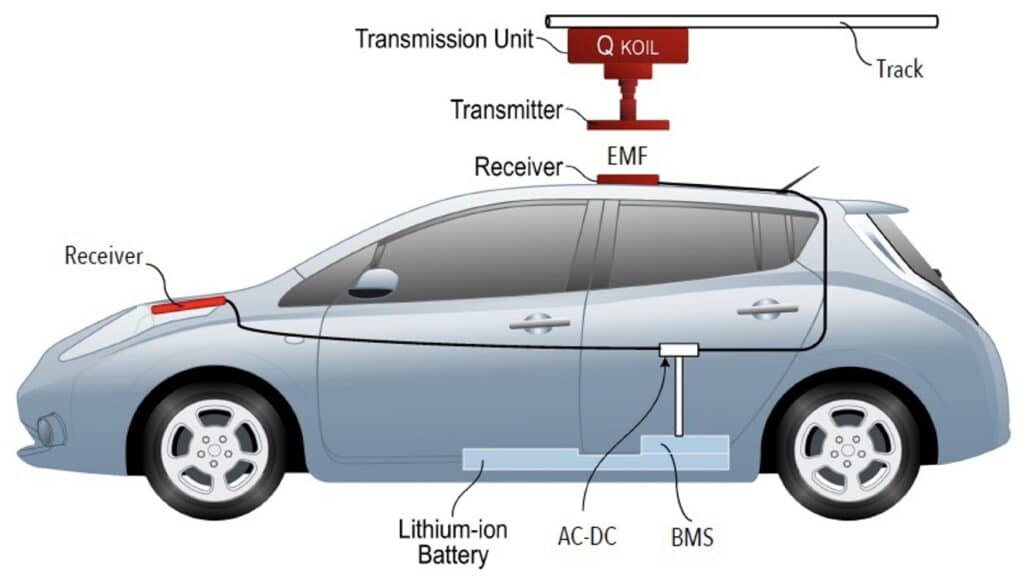Exciting and Innovative New Wireless EV Charging Solution Announced
Wireless EV charging offers several key advantages, enhancing both convenience and safety for EV owners and fleet managers. Traditional charging systems require physically plugging in cables, which can be time-consuming and potentially unsafe, especially in bad weather. In contrast, wireless charging eliminates the need for cables, using inductive technology that transfers energy from a charging device to a receiver in the vehicle. All the driver needs to do is park the car, and charging begins automatically, offering a seamless experience that saves time and effort, particularly beneficial for fleet charging stations and public infrastructure.
Wireless systems also improve safety by eliminating exposed cables and connectors, which are susceptible to damage from weather and vandalism. These systems reduce risks such as tripping hazards and electrocution. They comply with safety standards like those of the International Commission on Non-Ionizing Radiation Protection (ICNIRP), and their durable construction makes them suitable for harsh conditions, ensuring a longer lifespan for the infrastructure.
Additionally, wireless charging reduces wear and tear on both the charging cables and the vehicle’s charging port. The constant plugging and unplugging in traditional systems can cause degradation, lowering charging efficiency and increasing maintenance costs over time. By eliminating these physical connections, wireless systems extend the lifespan of the components and reduce ongoing costs.
Contrary to popular belief, wireless EV charging can achieve similar efficiency to traditional plugged systems, with efficiencies of around 90%. Technological advancements have ensured that power transfer is highly efficient, minimizing energy loss and maintaining charging times comparable to plugged systems. Some wireless systems can even adjust power output based on the battery’s state, further optimizing efficiency.
Looking ahead, wireless charging holds great potential for enabling autonomous charging. As self-driving technology evolves, autonomous EVs could communicate with charging infrastructure and recharge themselves without human intervention. This capability would streamline operations for autonomous fleets, like taxis and delivery vehicles, boosting efficiency and convenience on a large scale.

EV Charging Solutions, LLC (QKOIL) Offers an Innovative New Wireless EV Charging Approach
EV Charging Solutions LLC, also known as QKOIL, is based in Albuquerque, New Mexico. The company is developing a more advanced approach to wireless charging for electric vehicles, addressing the challenges seen in current systems. Presently, many solutions rely on ground-based charging pads, where the vehicle must be parked precisely over a charging coil beneath it. This method can be cumbersome, as drivers need to align the car accurately, and the pads can create potential trip hazards in parking areas.
Moreover, mounting the receiving coil under the vehicle exposes it to road debris and moisture, which can lead to wear and performance issues. These systems are also typically restricted to a single parking spot, requiring multiple installations for multi-vehicle setups, significantly increasing costs. In contrast, other wireless charging systems integrated into roadways demand extensive infrastructure investment and are mainly designed for high-power, large-scale applications. EV Charging Solutions (QKOIL) offers a more efficient, scalable, and cost-effective solution that avoids these limitations, making wireless EV charging more convenient and practical for everyday use.
EV Charging Solutions, LLC (QKOIL) has developed a unique above-the-vehicle wireless and hands-free EV charging system. Unlike traditional ground-based solutions, this system uses a transmitting coil that is mounted on an overhead cable or arm associated with a housing that can electromechanically move its location above the vehicle. The coil automatically extends or positions itself to align with a receiving coil located on or within the hood or roof of the EV, allowing it to begin charging without any manual intervention. This design eliminates the need for precise parking over a charging pad and avoids the issues related to road debris and moisture affecting under-vehicle coils.
What sets the QKOIL system apart is its ability to charge multiple EVs using a single setup. The system can be configured with an overhead gantry that enables the housing to traverse several parking spaces located side by side. The gantry moves from vehicle to vehicle, deploying the transmitting coil over the receiving coil for each one to conduct Level 2 charging sequentially, typically during overnight sessions. This approach is cost-effective, as it reduces the need for multiple ground-based chargers and makes efficient use of space while supporting multi-vehicle charging in settings like apartment complexes, hotels or public parking areas.
The QKOIL system’s above-the-vehicle wireless charging approach offers a significant improvement over traditional ground-based and in-roadway charging solutions, making it a versatile option for a variety of users, particularly fleet operators. By eliminating the need for precise parking or costly infrastructure, this system reduces common issues such as alignment difficulties, trip hazards, and exposure to environmental factors. Its unique sequential charging feature allows for more flexible and efficient charging schedules, making it ideal for fleet depots where vehicles can be charged in order of priority, minimizing downtime and maximizing operational efficiency.
This approach is especially valuable for fleet operators, who can manage large numbers of electric vehicles with fewer chargers and less manual labor, reducing both space and infrastructure costs. QKOIL’s ability to sequentially charge multiple EVs from a single system optimizes depot space and simplifies charging logistics.
Beyond fleet operators, the QKOIL system is also well-suited for multi-family dwellings, hotels, and commercial office spaces, where property owners need to provide EV charging options for tenants and guests. Its overhead gantry design can serve multiple parking spots, offering a cost-effective and space-efficient solution for EV charging in high-traffic or multi-user environments. This adaptability positions the QKOIL system as a potentially standard feature in future EV infrastructure, meeting the growing demand for flexible, scalable, and efficient charging solutions.

QKOIL Filed a Portfolio of Patents in the U.S. and Internationally
EV Charging Solutions, LLC (QKOIL), was founded in 2022 by Luis Ortiz and Kermit Lopez with the mission of developing a scalable multi-vehicle wireless charging system. The company is actively pursuing patent protection, having filed a portfolio of applications in the U.S. and internationally under the Patent Cooperation Treaty (PCT). Recently, the U.S. Patent & Trademark Office allowed one of their applications, which is expected to be issued by the end of the year.
To bring their innovative QKOIL system to life, EV Charging Solutions is collaborating with a team of engineering students from New Mexico State University (NMSU) through the NMSU Engineering Capstone Design Program, working on building and testing a prototype. In addition to seeking funding, the company is exploring potential partnerships with other EV charging companies, traditional automobile manufacturers, and EV producers to further develop and commercialize their technology.
Information about the concept can be found at: qkoil.com


Electric Vehicle Marketing Consultant, Writer and Editor. Publisher EVinfo.net.
Services